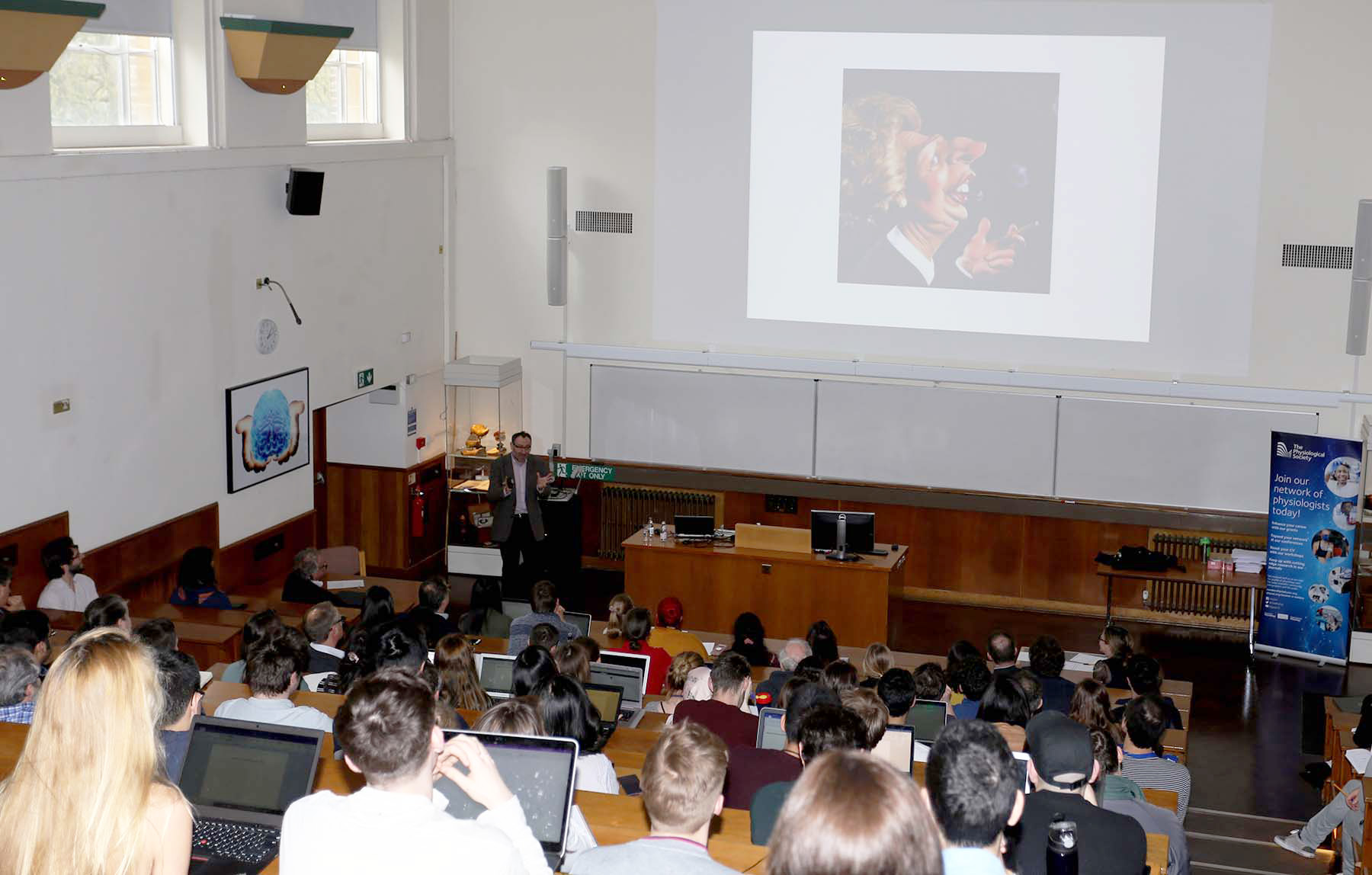In connection with the Athena Swan charter, on Friday 1st March 2019, the Department hosted the annual Marianne Fillenz Lecture.
Marianne Fillenz (1924 - 2012) came to the Department in 1950 from New Zealand to undertake a DPhil, studying receptors responding to stretch of the eye muscles. Her work clearly demonstrated that an eye muscle length signal is supplied to the brain in the cat, a fact that was later confirmed in humans.
Years later, she focused her research interests on the anatomy and physiology of the autonomic nervous system. Marianne was one of the first people to use and develop the technique of voltammetry to measure catecholamine release deep in the brain. Her technique of linear sweep voltammetry to measure dopamine release in the rat striatum is still much in use today.
This year's lecture, entitled Attention: Hippocampal long-term potentiation (LTP) might be important after all! was given by Professor David Bannerman, Head of the Behavioural Neuroscience Unit and Professor of Behavioural Neuroscience at the Department of Experimental Psychology here at the University of Oxford.

David Bannerman studied Pharmacology at the University of Bristol before undertaking a PhD in Neuroscience with Professor Richard Morris at the University of Edinburgh. He has been working in the Department of Experimental Psychology since 1995, studying the neurobiological mechanisms of learning and memory, and emotion.
I was fortunate enough to collaborate with Marianne Fillenz for several years, using voltammetric approaches to measure levels of biologically relevant molecules in behaving animals. These approaches are still very important for our current work. - Professor Bannerman

Professor Bannerman was delighted to deliver the talk at DPAG, remarking that "it was a scary but great experience to give the Marianne Fillenz Lecture and I feel tremendously honoured to have been able to talk in memory of Marianne."
To view more pictures of the lecture, click here.
To find out more and view pictures from Marianne's life, click here.


